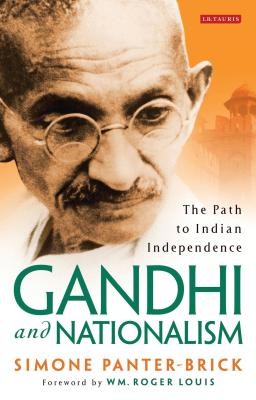
- We will send in 10–14 business days.
- Author: Brick Simone Panter
- Publisher: I. B. Tauris & Company
- ISBN-10: 1784530239
- ISBN-13: 9781784530235
- Format: 13.5 x 21.3 x 2 cm, softcover
- Language: English
- SAVE -10% with code: EXTRA
Reviews
Description
Gandhi's nationalism seems simple and straightforward: he wanted an independent Indian nation-state and freedom from British colonial rule. But in reality his nationalism rested on complex and sophisticated moral philosophy. His Indian state and nation were based on no shallow ethnic or religious communalism, despite his claim to be Hindu to his very core, but were grounded on his concept of swaraj - enlightened self-control and self-development leading to harmony and tolerance among all communities in the new India. He aimed at moral regeneration, not just the ending of colonial rule. Simone Panter-Brick's perceptive and original portrayal of Gandhi's nationalism analyses his spiritual and political programme. She follows his often tortuous path as a principal, spiritual and political leader of the Indian Congress, through his famous campaigns of non-violent resistance and negotiations with the Government of India leading to Independence and, sadly for Gandhi, the Partition in 1947. Gandhi's nationalism was, in Wm. Roger Louis's phrase, 'larger than the struggle forindependence'. He sought a tolerant and unified state that included all communities within a 'Mother India'.
Panter-Brick's work will be essential reading for all scholars and students of Indian history and political ideas.
EXTRA 10 % discount with code: EXTRA
The promotion ends in 19d.18:07:44
The discount code is valid when purchasing from 10 €. Discounts do not stack.
- Author: Brick Simone Panter
- Publisher: I. B. Tauris & Company
- ISBN-10: 1784530239
- ISBN-13: 9781784530235
- Format: 13.5 x 21.3 x 2 cm, softcover
- Language: English English
Gandhi's nationalism seems simple and straightforward: he wanted an independent Indian nation-state and freedom from British colonial rule. But in reality his nationalism rested on complex and sophisticated moral philosophy. His Indian state and nation were based on no shallow ethnic or religious communalism, despite his claim to be Hindu to his very core, but were grounded on his concept of swaraj - enlightened self-control and self-development leading to harmony and tolerance among all communities in the new India. He aimed at moral regeneration, not just the ending of colonial rule. Simone Panter-Brick's perceptive and original portrayal of Gandhi's nationalism analyses his spiritual and political programme. She follows his often tortuous path as a principal, spiritual and political leader of the Indian Congress, through his famous campaigns of non-violent resistance and negotiations with the Government of India leading to Independence and, sadly for Gandhi, the Partition in 1947. Gandhi's nationalism was, in Wm. Roger Louis's phrase, 'larger than the struggle forindependence'. He sought a tolerant and unified state that included all communities within a 'Mother India'.
Panter-Brick's work will be essential reading for all scholars and students of Indian history and political ideas.


Reviews